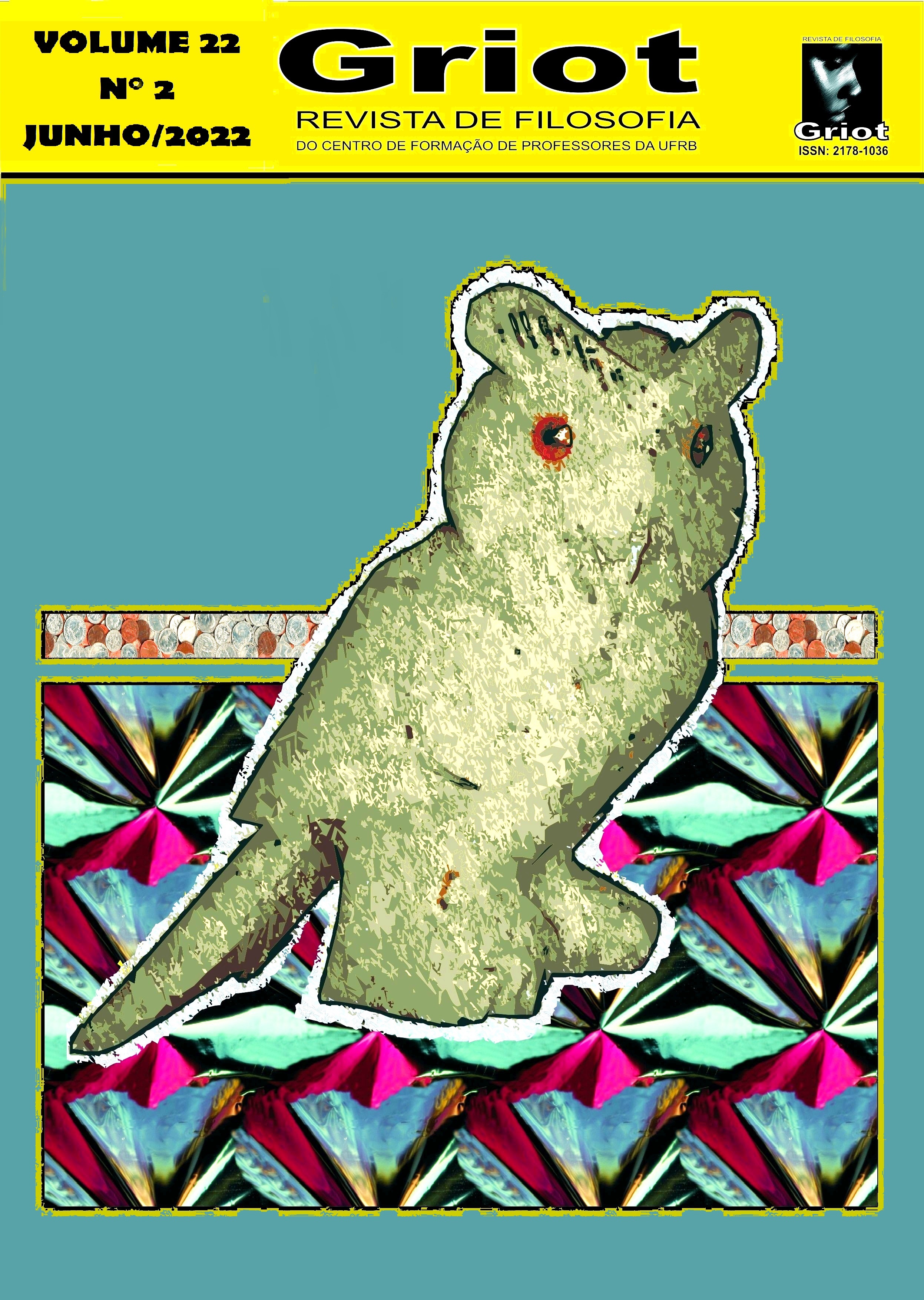Considerations about the notion of history in the nietzschian concept of genealogy
DOI:
https://doi.org/10.31977/grirfi.v22i2.2916Keywords:
Genealogy; History; Nietzsche; Laughter.Abstract
The general objective of this article is to discuss the concept of genealogy created by Friedrich Nietzsche. Our hypothesis is that Nietzsche allies himself to a certain notion of history to create this concept. It is then a matter of investigating to what extent Nietzsche takes history as a hieroglyphic writing and how this conception of history cannot be thought of from his understanding of origins. Thus, the relationship that Nietzsche establishes with history is another, which does not belong to the traditional register. For, if metaphysics can make history an objective science in which it is possible to define an absolute, a constant, and from there to trace a teleological movement, Nietzsche thinks of history as discontinuity, betting on the singularity of the event. Finally, we will point to the dimension of laughter inherent to this record of history, and how the genealogist's laughter would be a kind of protection against scientific seriousness for the realization of his gay science.
Downloads
References
DELEUZE, Gilles. Proust e os signos. 2.ed. trad. Antônio Piquet e Roberto Machado. Rio de Janeiro: Forense Universitária, 2003.
FOUCAULT, Michel. A verdade e as formas jurídicas. Tradução de Roberto Cabral e Eduardo Jardim Morais. Rio de Janeiro, Nau Editora, 1997.
FOUCAULT, Michel. Microfísica do Poder. Tradução; Roberto Machado. Rio de Janeiro: Graal, 2005.
NIETZSCHE, Friedrich. A Gaia Ciência. Tradução de Paulo César Souza. São Paulo: Companhia das Letras, 2001.
NIETZSCHE, Friedrich. Além do Bem e do Mal. Tradução de Paulo César Souza. São Paulo: Companhia das Letras, 1992.
NIETZSCHE, Friedrich.. Assim Falou Zaratustra. Tradução de Paulo César Souza. São Paulo: Companhia das Letras, 2011.
NIETZSCHE, Friedrich. Aurora. Tradução de Paulo César Souza. São Paulo: Companhia das Letras, 2004.
NIETZSCHE, Friedrich. Crepúsculo dos Ídolos. Tradução de Paulo César Souza. São Paulo: Companhia das Letras, 2006.
NIETZSCHE, Friedrich. Ecce homo: como alguém se torna o que é. Tradução de Paulo César de Souza São Paulo: Companhia das letras, 2003.
NIETZSCHE, Friedrich. Genealogia da Moral. Tradução de Paulo César Souza. São Paulo: Companhia das Letras, 2008.
NIETZSCHE, Friedrich. Humano, demasiado Humano. Tradução de Paulo César Souza. São Paulo: Companhia das Letras, 2000.
NIETZSCHE, Friedrich. Humano, demasiado Humano II. Tradução de Paulo César Souza. São Paulo: Companhia das Letras, 2008.
Downloads
Published
How to Cite
Issue
Section
License
Copyright (c) 2022 Fernanda dos Santos Sodré

This work is licensed under a Creative Commons Attribution 4.0 International License.
The authors who publish in Griot: Revista de Filosofia maintain the copyright and grant the magazine the right of first publication, with the work simultaneously licensed under the Creative Commons Attribution 4.0 International License, allowing sharing and adaptation, even for commercial purposes, with due recognition of authorship and initial publication in this journal. Read more...









































































